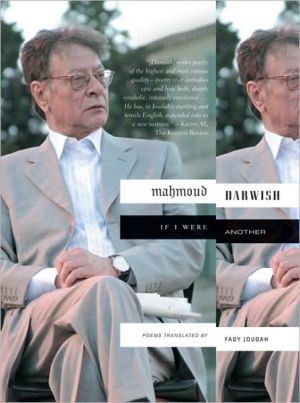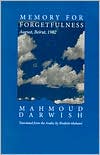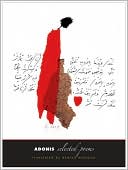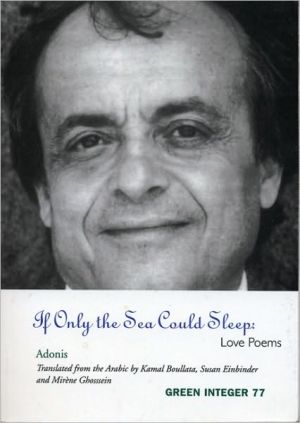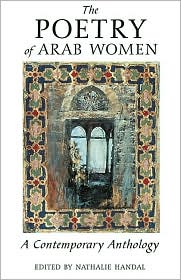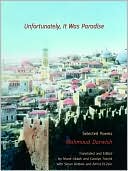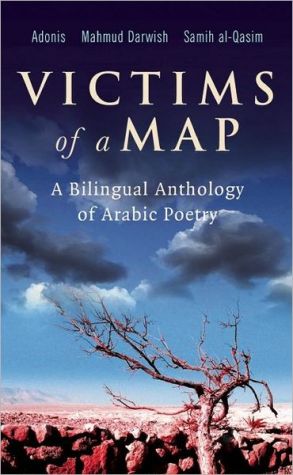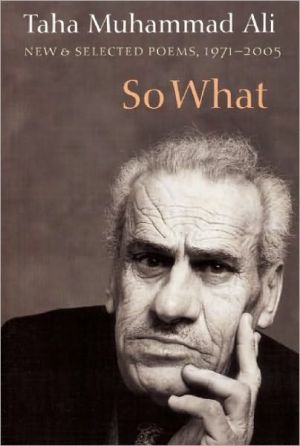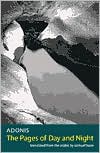If I Were Another
Winner of the PEN USA Literary Award for Translation\ Mahmoud Darwish was that rare literary phenomenon: a poet both acclaimed by critics as one of the most important poets in the Arab world and beloved by his readers. His language—lyrical and tender—helped to transform modern Arabic poetry into a living metaphor for the universal experiences of exile, loss, and identity. The poems in this collection, constructed from the cadence and imagery of the Palestinian struggle, shift between the most...
Search in google:
Winner of the PEN USA Literary Award for TranslationMahmoud Darwish was that rare literary phenomenon: a poet both acclaimed by critics as one of the most important poets in the Arab world and beloved by his readers. His language—lyrical and tender—helped to transform modern Arabic poetry into a living metaphor for the universal experiences of exile, loss, and identity. The poems in this collection, constructed from the cadence and imagery of the Palestinian struggle, shiftbetween the most intimate individual experience and the burdens of history and collective memory. Brilliantly translated by Fady Joudah, If I Were Another—which collects the greatest epic works of Darwish’s mature years—is a powerful yet elegant work by a master poet and demonstrates why Darwish was one of the most celebrated poets of his time and was hailed as the voice and conscience of an entire people.Publishers WeeklyThis second volume by the late, great Palestinian poet Darwish (1941–2008) to be translated by Palestinian-American doctor/poet Joudah comprises four nonconsecutive books of longer poems spanning 1990 to 2005. These works follow Darwish's poetic development from a historically focused middle period to the devastatingly personal lyric-epic of his late style. Formally varied—Rubaiyats alternate with sprawling free-form poems, in which prose paragraphs meet both long and short verse lines—Darwish's Sufi-inspired poetry probes, admires, describes, longs for and questions. His subjects are often broad: the inheritance and disinheritance of lands, languages and histories. Sometimes, though, he turns to concrete need, confessing, for example, in “Mural,” his book-length poem about a brush with death: “I want to walk to the bathroom/ on my own.” But Darwish's poems are at their most singular and powerful when he collapses the boundaries between great and small concerns, as when he articulates, “Wars teach us to love detail: the shape of our door keys,/ how to comb our wheat with eyelashes and walk lightly on our land.” The stakes of this work—for Darwish and for his readers—are clear: “O my language,/ help me to adapt and embrace the universe.” (Nov.)
Introduction: Mahmoud Darwish's Lyric Epic vii\ I See What I Want (1990)\ Rubaiyat 4\ Take Care of the Stags, Father 9\ Truce with the Mongols by the Holm Oak Forest 16\ A Music Sentence 21\ The Tragedy of Narcissus the Comedy of Silver 23\ The Hoopoe 42\ Eleven Planets (1992)\ Eleven Planets at the End of the Andalusian Scene 57\ I On the last evening on this earth\ II How do I write above the clouds?\ III I have behind the sky a sky\ IV And I am one of the kings of the end\ V One day, I will sit on the sidewalk\ VI Truth has two faces and the snow is black\ VII Who am I after the stranger's night?\ VIII Water, be a string to my guitar\ XI In exodus I love you more\ X I want from love only the beginning\ XI The violins\ The "Red Indian's" Penultimate Speech to the White Man 69\ A Canaanite Rock in the Dead Sea 78\ We will Choose Sophocles 83\ Rita's Winter 88\ A Horse for the Stranger 94\ Mural (2000) 99\ Exile (2005)\ I Tuesday and the Weather is Clear 149\ II Dense Fog over the Bridge 160\ III Like a Hand Tattoo in the Jahili Poet's Ode 171\ IV Counterpoint 183\ Notes 195\ Glossary 197
\ Publishers WeeklyThis second volume by the late, great Palestinian poet Darwish (1941–2008) to be translated by Palestinian-American doctor/poet Joudah comprises four nonconsecutive books of longer poems spanning 1990 to 2005. These works follow Darwish's poetic development from a historically focused middle period to the devastatingly personal lyric-epic of his late style. Formally varied—Rubaiyats alternate with sprawling free-form poems, in which prose paragraphs meet both long and short verse lines—Darwish's Sufi-inspired poetry probes, admires, describes, longs for and questions. His subjects are often broad: the inheritance and disinheritance of lands, languages and histories. Sometimes, though, he turns to concrete need, confessing, for example, in “Mural,” his book-length poem about a brush with death: “I want to walk to the bathroom/ on my own.” But Darwish's poems are at their most singular and powerful when he collapses the boundaries between great and small concerns, as when he articulates, “Wars teach us to love detail: the shape of our door keys,/ how to comb our wheat with eyelashes and walk lightly on our land.” The stakes of this work—for Darwish and for his readers—are clear: “O my language,/ help me to adapt and embrace the universe.” (Nov.)\ \ \ \ \ Library JournalSteeped in the tradition and values of classical Arabian poetry and yet contemporary, fluid, and conversational, Darwish's work has enjoyed both critical acclaim and widespread popularity. His poems are couched in imagery and cadences that evoke the Palestinian struggle, touching on such universal experiences as exile, loss, and identity ("Water, be a string to my guitar. The new conquerors have arrived/ and the old ones have gone. It is difficult to remember my face/ in mirrors. Be my memory that I may see what I have lost"). While writing from under the burden of history and collective memory, Darwish also details the personal and everyday in an individual's life. His language is powerful, memorable: "Rita cracks the walnut of my days, and the fields expand/ and this small earth becomes mine." Arguably the voice and conscience of the Palestinian people, Darwish died in 2008 and at the time was considered one of poetry's few international superstars. VERDICT Highly recommended for all world literature collections, this will also appeal to those interested in the Middle East.—Louis McKee, Painted Bride Arts Ctr., Philadelphia\ \
